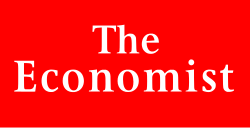
Aug. 29, 2024
AT THEIR annual retreat in Jackson Hole, central bankers celebrated the fall of inflation. But do they deserve the credit? In the rich world, annual price rises in the median country are down from a peak of about 10% in early 2022 to below 3% today. Remarkably, this has been achieved without deep recessions (see Finance & economics section). The Federal Reserve will probably soon join central banks in Europe in cutting interest rates, bond yields have fallen sharply since the summer and stockmarkets have shrugged off a growth scare that struck at the beginning of August. America’s economy was in fact bigger in the second quarter of 2024 than had been forecast before the covid-19 pandemic struck.
Monetary tightening is supposed to slow growth, and in the 1980s it quelled inflation only after deep downturns. The apparent lack of damage today has led to the revival of a dangerous myth: that inflation would have gone away by itself. Paul Krugman of the New York Times has even claimed that Jerome Powell, the Fed’s chair, used his speech at Jackson Hole to attribute inflation “largely to transitory pandemic effects”, resurrecting an old narrative that central bankers dumped in 2021.

Illustration: Satoshi Kambayashi
That view is a misinterpretation both of the economy and the speech. Mr Powell said that high inflation “was not transitory”. Papers presented at Jackson Hole showed the crushing effect that rate hikes had on mortgage credit, and how the Fed risked losing its credibility as inflation took off. Even forecasters who expected inflation to persist thought the Fed would not act—meaning they had lost faith in central bankers’ commitment to price stability. The expectation that rate rises would not come risked worsening inflation by pushing down the real, inflation-adjusted rate of interest.
Monetary policy does not need to cause a slump to bring down price growth: it must only force the economy to grow more slowly than it otherwise could. This has been hard to spot in America, where growth has been fast in part because of a surge in immigration, and where a budget deficit of about 7% of GDP has counteracted higher interest rates. Yet the cooling of the labour market is clear from an enormous drop in job vacancies and a small rise in the unemployment rate. Europe, meanwhile, has suffered so many blows, including the war in Ukraine, that it is hard to judge what has caused what. But rate rises will have had a similar underlying effect.
Some have argued that monetary tightening simply restored an intangible sense of credibility, and that the actual level of interest rates has not mattered. Yet rules of thumb suggested that America’s rates would need to rise to about today’s level, as The Economist noted in 2022. It is true that energy and food prices pushed up headline inflation, only to fall back. But in America, the euro zone and Britain, interest-rate rises have been fairly well-calibrated to the rise in core inflation, which excludes these volatile prices.
It is vital that policymakers draw the right lessons from the pandemic, given the danger that they will face more episodes like it. Many central banks have, over the long term, more or less hit the inflation targets that were adopted around the world in the 1990s. But that was an era in which supply shocks were rare and rich-world governments were, on the whole, fiscally prudent. Today trade wars, the green transition, further pandemics and vast public debts all threaten to create inflationary disruptions with which central banks will have to grapple. How they achieved today’s victory over high inflation therefore matters. It was not just a stroke of luck.


